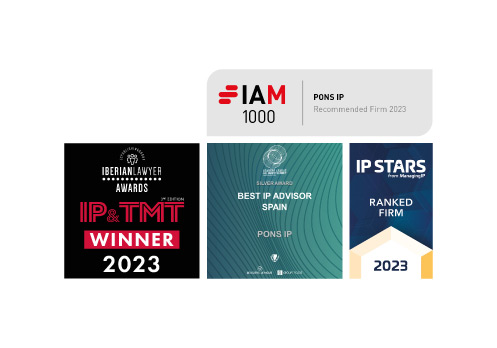We are getting closer and closer to the entry into force of the Unitary Patent system, but there are many doubts remaining and important concepts that we need to be clear about. As such, below you will find a clear and detailed breakdown of the 10 key concepts about the Unitary Patent that you cannot overlook.
1. 1. What is the Unitary Patent?
It is a Unified System that will make it possible for any European Patent (EP) holder to obtain patent protection in up to 25 member states of the European Union through a single post-grant process as opposed to the current validation system.
2. Which countries form part of the Unitary Patent agreement?
As of May 2022, 25 countries are taking part:
Austria, Belgium, Bulgaria, Cyprus, Czech Republic, Denmark, Estonia, Finland, France, Germany, Greece, Hungary, Ireland, Italy, Latvia, Lithuania, Luxembourg, Malta, The Netherlands, Poland, Portugal, Romania, Slovakia, Slovenia and Sweden.
Spain is not part of the agreement, but can Spanish patent holders benefit from the Unitary Patent system?
Yes, patent holders from non-signatory countries (such as Spain) can benefit from the Unitary Patent system for the countries that have ratified it.
3. Will this involve any change in the pre-grant procedure of a European Patent?
No, the process to obtain a Unitary Patent will start after granting the European Patent and its entry into force will not involve any change in the pre-grant procedure of the requests of European Patents.
4. What if I have a patent application pending? Can I change it to request the Unitary Patent?
The Unitary Patent is a post-grant process of the European Patent, you will not have to change anything while your European Patent application is pending. The period to apply for the unitary effect of a European Patent is one month from the date of the mention to grant.
Until the system enters into force, and from the moment when Germany deposits its instrument of ratification, it is possible to request a delay in the grant until after the entry into force of the Unitary Patent and/or request the unitary effect of your European Patent ahead of time.
5. When does the Unitary Patent enter into force?
It is expected to enter into force at the end of 2022: once Germany presents its instrument of ratification and once 3-4 months have elapsed from said presentation. This will automatically and officially give rise to the birth of the Unified Patent Court.
6. What is the Unified Patent Court?
The court will enter into force on the first day of the fourth month after the month in which the last ratification required by the Agreement on a Unified Patent Court (UPCA) is deposited.
The Unified Patent Court is a common court for all signatory member states and will be subject to the same obligations by virtue of the Law of the Union as any other national court. The sentences of the UPC will be effective in all the countries that fall under its jurisdiction.
7. Benefits.
The main advantage is the centralized administration with regard to the EPO, which includes advantages directly related with:
- Savings on renewal fees. The annual fees will be paid to the EPO, avoiding paying different renewal fees in each country of validation.
- National validations will no longer be required, except in non-signatory countries in which customers want protection.
- Savings on translation costs. It is not necessary to provide translations in all countries. Simplified translation requirements.
- The Unified Patent Court will centralize the national courts. Consequently this will lead to an improvement in legal security, avoid duplicate parallel proceedings in multiple member states and involve a considerable reduction in procedural costs.
- Registry of licenses and transfers through a unified procedure.
8. Questions to keep in mind before opting for the Unitary Patent:
From the strategic point of view, there are certain decisive issues that have to be considered:
- • Economic performance. There will not always be savings if you want to validate the European Patent in only a few countries. It is expected that the annual fees for the UP will be equal to the fees that would be paid for validation in 4 or 5 countries.
- Centralized revocation. Despite the benefits of not having to litigate country by country, the defendant is judged all at once. Therefore, if a Unitary Patent were to be declared invalid in the Unified Court for example, this would be applicable in all participating countries.
- Litigation in a new court. It is difficult to anticipate which criteria will prevail in the decision-making process.
9. Exclusion of the Unified Patent Court via the Opt-out option.
During the first 7 years starting from the entry into force of the Agreement on the Unified Patent Court, the holders or applicants of non-unitary European Patents can opt out of the jurisdiction of the Unified Patent Court, UPC, (the procedure is known as the Opt-out).
The holders of non-unitary European Patents can be excluded from the jurisdiction of the UPC, by applying the Opt-out process, both regarding applications for European Patents, as well as European Patents that have already been granted.
However, Unitary Patent applications cannot be excluded at any time and are under the exclusive jurisdiction of the Unified Patent Court.
It is important to note that an Opt-out request is reversible at any time. If the holder of a patent decides to return to the jurisdiction of the UPC, they can flexibly request an Opt-in.
10. What happens if you opt for the Unified Patent Court system? (Non opting-out)
Concerning patent infraction and invalidity proceedings, during the 7-year transitional period, for all applications and European Patents without unitary effect both the Unified Court as well as the national courts shall have jurisdiction.
Therefore, during the transitional period, patent holders/applicants can opt-out of the UPC system whenever a proceeding has not been started in this court. Once the UPC hears an action, it is not possible to opt-out. Likewise, once a national court hears an action concerning an EP, the holder cannot exercise the opt-in right.
As such, it is of vital importance for European Patent applicants/holders to analyse their portfolio and decide in which cases it is strategically useful to request the opt-out and thus avoid the risk that third parties may lodge a suit for invalidation which, if it is successful, would automatically invalidate the patent in all the signatory states of the Unitary Patent.
There is no doubt that the Unitary Patent system and the Unified Patent Court will involve an important change and will represent a breakthrough that will benefit competition in the European economy. However, this must inevitably go together with working on an IP strategy focused on maximizing protection and getting the most out of the IP.




